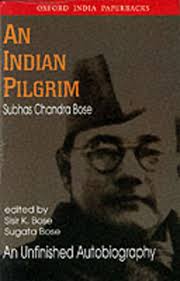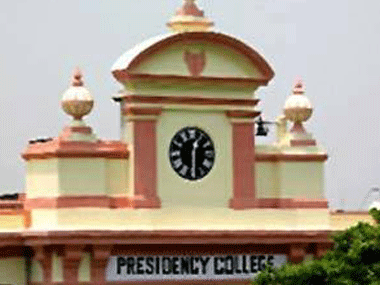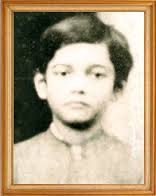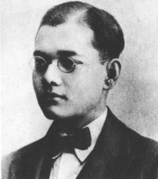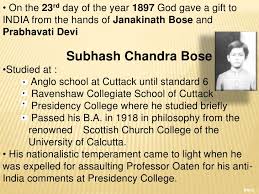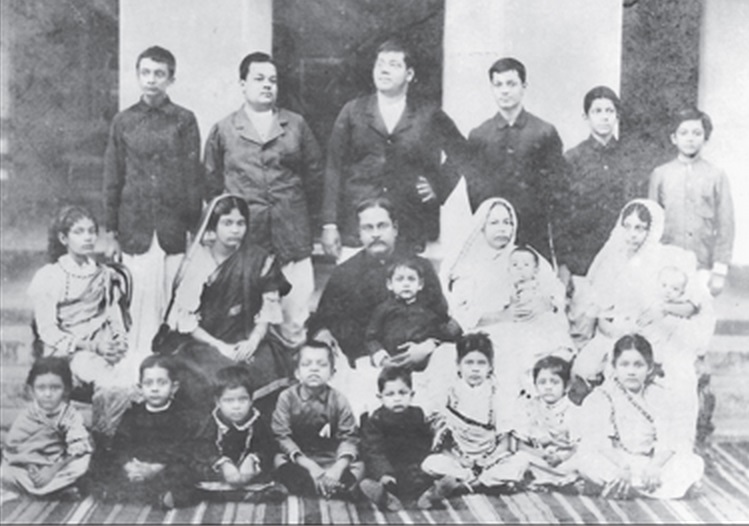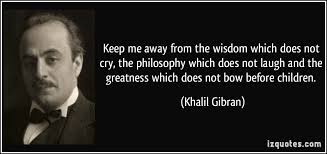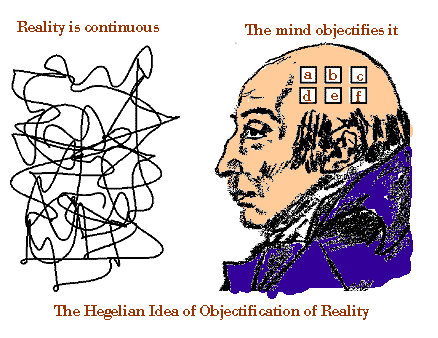Dr. V.K.Maheshwari, M.A(Socio, Phil) B.Sc. M. Ed, Ph.D
Former Principal, K.L.D.A.V.(P.G) College, Roorkee, India
When I left India the Jallianwalla Bagh massacre at Amritsar had already taken place. But hardly any news of it had travelled outside the Punjab. Punjab was under martial law and there was a strict censorship on all news sent out from that province. As a consequence, we had heard only vague rumours of some terrible happenings at Lahore and Amritsar. One of my brothers who was then working at Simla brought us some news or rather rumours about the Punjab happenings and also about the Anglo-Afghan war in which the Afghans had got the better of the British. But on the whole the public were ignorant of what had been going on in the northwest, and I sailed for Europe in a complacent mood.
On the boat we found quite a number of Indian passengers, mostly students. Accordingly we considered it advisable to take a separate table where we would feel more at home. Our table was presided over by an elderly and estimable lady, the wife of a deceased Indian Civil Servant. The majority of the passengers were Britishers of the sunburnt snobbish type. Association with them was hardly possible so we Indians kept mostly to ourselves. Occasionally there would be friction between an Indian passenger and a Britisher over something or other, and though nothing very serious took place by the time we reached England, we all had a feeling of resentment at the supercilious attitude of the Britisher towards Indians. One interesting discovery I made during the voyage Anglo—Indians develop a love for India and the Indian people when they are out of India. In the boat there were a few Anglo-Indian passengers. The nearer we came to Europe, the more home-sick-I mean ‘India-sick’ they became. In England Anglo-Indians cannot pass themselves off as Englishmen. They have, moreover, no home there, no associations, no contacts. It is, therefore, inevitable that the farther they go from India, the closer they should feel drawn towards her.
I do not think that we could have chosen a slower boat than the City of Calcutta. She was scheduled to reach Tilbury in 30 days but actually took a week more. That was because she was held up at Suez for want of coal, owing to the coal-strike in England. Our only consolation was that we called at a number of ports on our way. To make life on board for five weeks somewhat bearable, we had to fall back on that spice of life, humour. One fellow passenger had been ordered by his wife not to touch beef. By another passenger he was tricked into taking ‘copta curry’ of beef-—which he thoroughly enjoyed–under the impression that it was mutton ‘copta curry’. Great was his remorse when he discovered his mistake after twelve hours. Another passenger had orders from his fiancée to write a letter every day. He spent his time reciting love-poems and talking about her. Whether we liked it or not, we had to listen. He was beside himself with joy when one day I remarked in reply to his importunity that his fiancée had Grecian features.
Even the longest day has its end; so we did reach Tilbury after all. It was wet and cloudy—typical London weather. But there was plenty of excitement to make us oblivious of outside nature. When I first went down into a tube—station, I enjoyed the experience, for it was something new.
The next morning I began exploring. I called at the office of the Adviser to Indian students at Cromwell Road. He was very nice to me, gave me plenty of advice, but added that so far as admission to Cambridge was concerned, there was nothing doing. There by chance I met some Indian students from Cambridge. One( S. M. D.) of them strongly advised me to proceed straight to Cambridge and try my luck there, instead of wasting my time at Cromwell Road. I agreed, and the next day I was at Cambridge. Some students from Orissa, whom I had known slightly before, lent me a helping hand. One’ of them who belonged to Fitzwilliam Hall took me to Mr Reddaway, the Censor, and introduced me to him. Mr Reddaway was exceedingly kind and sympathetic, gave me a patient hearing, and at the end wound up by saying that he would admit me straightaway.
The problem of admission settled, the next question was about the current term which had begun two weeks ago. If I lost that term then I would probably have to spend nearly a year more in order to qualify for a degree. Otherwise, I would take my degree by June, 1921. On this point also Mr Reddaway was accommodating beyond my expectation. He made use of the coal-strike and of my military service in order to persuade the University authorities to stretch a point in my favour. He succeeded, and the result was that I did not lose that term. Without Mr Reddaway I do not know what I would have done in England.
I reached London about the 25th October and it was the first week of November before I could settle down to work at Cambridge. I had an unusually large number of lectures to attend part of them for the Mental and Moral Sciences Tripos and the rest for the Civil Service Examination. Outside my lecture hours I had to study as hard as I could. There was no question of any enjoyment for me, besides what I could get from hard work. I was to appear under the old Civil Service Regulations which necessitated my taking up eight or nine different subjects, some of which I had to study for the first time. My subjects were as follows: English Composition, Sanskrit, Philosophy, English Law, Political Science, Modern European History, English History, Economics, Geography. Over and above studying these subjects, I had to do surveying and map-making (Cartography) for the Geography paper and to learn something of French in connection with the Modern History paper.
The work for the Mental and Moral Sciences Tripos was more interesting but I could not devote much time to it, beyond attending the lectures. Among my lecturers were Prof. Sorlcy (Ethics), Prof. Myers (Psychology), and Prof. McTaggart (Metaphysics). During the first three terms I devoted practically my whole time to preparing for the Civil Service Examination. In the way of recreation, I attended the meetings of the Indian Majlis and the Union Society.
Cambridge after the war was conservative. Oxford was much the same but was beginning to go liberal. One could judge of the prevailing atmosphere from the fact that pacifists, socialists, conscientious objectors, and the like could not easily address a public meeting at Cambridge. The undergraduates would generally come and break up the meetings and ‘rag’ the lecturer by throwing bags of flour at him or giving him a ducking in the river. ‘Ragging’ was of course a legitimate recreation for the undergraduates there and I heartily approved of it. But breaking up meetings simply because the speaker represented a different ideology did not appeal to me.
What greatly impressed an outsider like myself was the measures of freedom allowed to the students, and the general esteem in which they were held by all and sundry. This undoubtedly had a very wholesome effect on their character. What a change, I thought, from a police ridden city like Calcutta where every student was looked upon as a potential revolutionary and suspect! And living in the atmosphere of Cambridge, it was difficult to imagine the incidents in the Calcutta Presidency College professors maltreating students for there it was the professors who ran the risk of being maltreated by the undergraduates. In fact, unpopular dons were occasionally ‘ragged’ by the undergrads and their rooms raided by the latter though in a friendly way, for later on they were compensated for any damage done. Even when a ragging was going on in the streets of Cambridge, causing damage to public property, the police would behave with remarkable restraint, a thing quite impossible in India.
Apart from the measure of freedom enjoyed by the students, which would naturally appeal more to me than to British students born and brought up in a free atmosphere, the consideration and esteem with which they were treated everywhere was very striking. Even a fresher coming up for the first time would at once get the impression that a high standard of character and behaviour was expected of him, and he would be bound to react favourably. This consideration shown towards the undergraduates was not confined to Cambridge but existed to some extent all over the country. In the trains when one was questioned and replied that he was at Cambridge (or Oxford), the attitude of the questioner would change at once. He would become friendly-or shall I say more respectful? This was my personal experience. If there is an element of snobbishness in those who go up to Cambridge or Oxford, I certainly do not hold a brief for it. But, having been brought up in a police-ridden atmosphere, it is my firm conviction that there is a lot to be said in favour of allowing students and young men more freedom and treating them with consideration as if they were responsible citizens.
I remember an incident when I was a College student in Calcutta. I was then awfully fond of buying new books. If I set my heart on a book in a shop window, I would not rest till I possessed it. I would feel so restless till I got the book that I had to buy it before I returned home. One day I went to one of the biggest shops in College Street and asked for a book on philosophy, on which I was very keen at the time. The price was announced and I found that I was short by a few rupees. I requested the manager to let me have the book and promised to bring the balance the next day. He replied that that was not possible; I would have to pay the full price down first. I was not only disappointed at failing to get the book but was extremely hurt because I was distrusted in this way. ( I know that things have changed now.) It was therefore such a relief to find that you could walk into any shop in Cambridge and order anything you liked without having to bother about payment on the spot.
There is another thing which drew my admiration–the debates at the Union Society’s meetings. The Whole atmosphere was so exhilarating. There was perfect freedom to talk what you liked or attack whomsoever you wished. Prominent members of Parliament and sometimes members of the Cabinet took part in these debates in a spirit of perfect equality and would, of course, come in for slashing criticism not unmixed with invective at times. Once Horatio Bottomley, M. P. was taking part in a debate. He was warned by an oppositionist speaker ”There are more things in heaven and earth, Horatio, than your John Bull dreams of.”Sparkling bits of humour would enliven the proceedings. During the course of a debate on Ireland a pro-Irish speaker, while exposing the real character of the Government, referred to the “forces of law and order on one side and of Bonar Law and disorder on the other.”
Among the guests at these debates, besides well-known parliamentary figures, there were also those who were on the threshold of a public career. I remember, for instance, that Dr Hugh Dalton was often present at these debates. He was a prospective M. P. nursing some constituency at the time. Sir Oswald Mosely, then a Left Wing Liberal (or Labourite) participated in a debate on India. He vehemently denounced ( What a change now!) the policy of Dyer and O’dwyer and raised a storm in British circles by his remark that the events in Amritsar in 1919 were the expression of racial hatred. Sir John Simon and Mr Clynes once came to plead the miners’ cause before the Cambridge public at Guild hall. The undergrads turned up with the object of giving them a hot time. Sir John Simon had to run the gauntlet, but when Mr Clynes got up (I think he had been a miner himself) he spoke with such sincerity and passion that those who had come to scoff remained to pray.
During the six terms that I was in Cambridge the relations between British and Indian students were on the whole quite cordial, but in few eases did they ripen into real friendship? I say this not from my personal experience alone but from general observation as well. Many factors were responsible for this. The war undoubtedly had its effect. One could detect in the average Britisher a feeling of superiority beneath a veneer of bonhomie which was not agreeable to others. On our side, after the post-war events in India and particularly the tragedy at Amritsar, we could not but be sensitive (perhaps ultra—sensitive) with regard to our self-respect and national honour. It also pained us to find that among middle-class Englishmen there was a great deal of sympathy for General Dyer. It is probable that speaking generally the basis for a friendship between Britishers and Indians did not exist. We were politically more conscious and more sensitive than we had been before. Consequently friendship with an Indian presupposed sympathy, or at least toleration, for his political ideas. That was not always easy to find. Among the political parties only Labour expressed sympathy for Indian aspirations. It followed that there was greater possibility of friendship with Labourites or people having pro-Labour views and sentiments.
The above remarks are of a general nature, and must provide for exceptions. I myself made friends with people, students and non—students, holding conservative views regarding British politics, which continues till the present day in spite of all that I have been through. That was possible because they had sufficient toleration for my ideas. The intelligentsia of Great Britain has been passing through something like an intellectual revolution during the last decade, and specially during the last five years, and I daresay that that is reflected in the atmosphere of Cambridge, Oxford, London, and other places. The experience of today may not therefore tally with that of 1919 and 1920.
That I have not misjudged British mentality as I found it soon after the war can be demonstrated from one or two incidents. It is generally claimed that the average Briton has a sense of fair-play, a sportsmanlike spirit. During my time at Cambridge we Indians wanted more proof of it. The tennis champion for the year was an Indian student, Sunder Dass, who naturally got the blue. We expected that he would be called upon to captain the team in the inter-varsity matches. But in order to frustrate that, an old blue who had already gone down was sent for and made to stay on for another year. On paper it was alright. The senior blue had the priority in the matter of captaining the team, but everybody knew what had passed behind the scenes and there was silent resentment in the ranks of the Indian students.
Another instance. One day we saw a notice inviting applications from undergraduates for enlistment in the University Officers’ Training Corps. Some of us went up and applied. We were told that the question would have to be referred to the higher authorities. After some time came the reply that the India Office objected to our enlisting in the O.T.C. The matter was brought before the Indian Majlis and it was decided to take the matter up with the Secretary of State for India, and Mr K. L. Gauba and I were authorised to interview him if necessary. The then Secretary, Mr E. S.
Montague, referred us to the Under-Secretary of State for India, the Earl of Lytton, who received us cordially and gave us a patient hearing. He assured us that the India Office had no objection at all and that the opposition came from the War Office. The War Office was informed that the enlistment of Indians in the O.T.C. would be resented by British students. Further, the war Office was afraid that since members of the O.T.C., when fully qualified, were entitled to commissions in the British Army, a difficult situation would arise if Indian students after qualifying in the O.T.C. demanded commissions in the British Army. Lord Lytton added that personally he thought it was inevitable that in future Indian officers should be in charge of mixed regiments, but the prejudice against Indians unfortunately persisted in certain circles and could not be ignored. We replied that in order to obviate the difficulty we were prepared to give an assurance that we would not ask for commissions in the British Army. We added that we were more interested in getting the training than in joining the army as a profession. On returning to Cambridge we again tackled the O.T.C. staff, and we were again told that the War Office was not objecting to the proposal but the India Office. Whatever the truth, no doubt that there was prejudice against Indians in certain British circles. As long as I was there, our demands were not met by the authorities and I daresay the position is the same today as it was seventeen years ago.
Indian students at Cambridge at that time had, on the whole, a satisfactory record, especially in the matter of studies. In sports, too, they did not do badly at all. We would only have liked to see. them doing well in boating. Now that boating is becoming popular in India, it is to be hoped that in future they will figure conspicuously in boating also, The question is often raised as to whether it is desirable to send Indian students abroad and if so at what age. In 1920 an official Committee was appointed, presided over by Lord Lytton, to consider the affairs of Indian students in Great Britain, and this point was also discussed in connection therewith. My considered opinion was and still is that Indian students should go abroad only when they have attained a certain level of maturity. In other words, as a rule, they should go after graduation. In that ease they can make the most of their stay abroad. This was the view that I put forward when I represented the Cambridge Indian Majlis before the above Indian Students’ Committee. Much is made of public school-training in Britain. I do not desire to express any opinion as to how it affects British people and British students. But so far as Indian students are concerned, I do not have a kind word for it. At Cambridge I came across some Indian products of English public schools and I did not think highly of them(Every rule has its exceptions, of course. ) Those who had their parents living with them in England and had home influence to supplement their school-education fared better than those who were quite alone. Education in the lower stages must be ‘national,’ it must have its roots in the soil. We must draw our mental pabulum from the culture of our own country. How can that be possible if one is transplanted at too early an age? No, we should not, as a rule, countenance the idea of sending boys and girls to schools abroad quite alone at an immature age. Education becomes international at the higher stages. It is then that students can, with profit, go abroad, and it is then that the East and the West can commingle to the benefit of both.
In India members of the Civil Service used to be known formerly as ‘subjunta’, or one who knows everything. There was some justification for that because they used to be put up to all kinds of jobs. The education that they received did give them a certain amount of elasticity and a smattering of a large number of subjects which was helpful to them in actual administration. I realised this when I sat for the Civil Service Examination, with nine subjects on my shoulders. Not all of them have been useful to me in later life, but I must. say that the study of Political Science, Economics, English History, and Modern European History proved to be beneficial. This was specially the case with Modern European History. Before I studied this subject I did not have a clear idea of the politics of Continental Eu¬rope. We Indians are taught to regard Europe as a magnified edition of Great Britain. Consequently we have a tendency to look at the Continent through the eyes of England. This is, of course, a gross mistake, but not having been to the Continent, I did not realize it till I studied Modern European History and some of its original sources like Bismarck’s Autobiography, Metternich’s Memoirs, Cavour’s Letters, etc. These original sources, more than anything else, I studied at Cambridge, helped to rouse my political sense and to foster my understanding of the inner currents of international politics.
Early in July, 1920, the Civil Service open competitive examination began in London. It dragged on for a month and the agony was a prolonged one. I had worked hard, on the whole, but my preparation was far below my expectation. So I could not feel hopeful. So many brilliant students had come down in spite of years of preparation that it would require some conceit to feel anything but diffident. My diffidence was heightened when I foolishly threw away about 150 sure marks in my Sanskrit paper. It was the translation paper, English to Sanskrit, and I had done it well. I prepared a rough copy of the translation first with the intention of making a fair copy in the answer book. But so oblivious was I of the time that when the bell went, I had transcribed only a portion of the text I had prepared in rough. But there was no help the answer book had to be surrendered and I could only bite my fingers.
I informed my people that I had not done well and could not hope to find a place among the selected candi¬dates. I now planned to continue my work for the Tripos. Imagine my surprise, therefore, when I got a telegram one night when I was in London from a friend of mine which ran thus ”CONGRATULATIONS SEE MORNING POST.” I wondered what it meant. Next morning when I got a copy of the Morning Post, I found that I had come out fourth. I was glad. A cable went off to India at once.
I had now another problem to face. What should I do with the job? Was I going to give the go by to all day dreams and aspirations, and settle down to a comfortable life? There was nothing new in that. So many had done it before-so many had talked big when they were young and had acted differently when grown up. I knew of a young man from Calcutta who had Ramakrishna and Vivekananda at the tip of his tongue in his college days, but later on married into a rich family and was now safely landed in the Indian Civil Service. Then there was the case of a friend from Bombay who had promised in the presence of the late Lokamanya Tilak that, if he happened to pass the I.C.S. Examination, he would resign and devote himself to national work5 But I
( When Lokamanya Tilak was to visit Cambridge, the Indian Office and the Foreign Office became nervous. Lord Curzon, who was then the Foreign Secretary, wrote to the Vice-Chancellor requesting him to stop his visit if possible. The Vice-Chancellor sent for the Indian students in that connection, but they declared that since Lokamanya Tilak had already been invited, it was quite impossible to cancel his visit. Thereafter, there was no interference on the part of the University, Lord Curzon’s letter notwithstanding.)
When Lokamanya B. G. Tilak visited Cambridge in 1919 he appealed to the Indian students not to go in for Government service but to devote themselves to national service. He regretted that so many bright and promising students were hankering after Government jobs. This friend in a fit of inspiration stood up and announced that, though he was trying to qualify for the Indian Civil Service, if he managed had resolved early in life not to follow the beaten track and, further, I had certain ideals which I wanted to live up to. It was therefore quite impossible for me to go into the Service unless I could make a clean sweep of my past life.
There were two important considerations which I had to weigh before I could think of resigning. Firstly, what would my people think? Secondly, if I resigned now in a fit of excitement, would I have any occasion in future to regret my action? Was I absolutely sure that I was doing the right thing?
It took me seven long months to make up my mind. In the meantime, I started a correspondence with my second brother, Sarat. Fortunately the letters I wrote have been preserved by him. The ones I received have all been lost in the storm and stress of a hectic political life. My letters are interesting inasmuch as they show the working of my mind in 1920.
The I.C.S. Examination result was declared about the middle of September, 1920. A few days later when I was to pass the examination, he would resign and then serve the national cause. He did not pass the first time but the next year he was successful and he is now in the service.
(The burden of Lokamanya Tilak’s speech at Cambridge was that he demanded ‘Home Rule within fifteen years.’ Some English undergrads who had heard that Lokamanya Tilak was a firebrand came to the lecture expecting some hot stuff. After the lecture they remarked: “If these are your extremists, we don’t want to hear your moderates). Taking a holiday at Leigh-on—Sea in Essex I wrote to him on the 22nd September as follows :–
“I was so glad to receive the telegram conveying congratulations. I don’t know whether I have gained anything really substantial by passing the I.C.S. Examination but it is a great pleasure to think that the news has pleased so many and especially that it has delighted father and mother in these dark days.
“I am here as a paying guest of Mr B.’s family. Mrs B. represents English character at its very best. He is cultured and liberal in his views and cosmopolitan in his sentiments …. Mr B. counts among his friends Russians, Poles, Lithuanians, Irishmen, and members of other nationalities. He takes a great interest in Russian, Irish and Indian literature, and admires the writings of Ramesh Dutt and Tagore . I have been getting heaps of congratulations on my standing fourth in the competitive examination. But I cannot say that I am delighted at the prospect of entering the ranks of the I.C.S. If I have to join this service I shall do so with as much reluctance as I started my study for the C.S. Examination with. A nice flat income with a good pension in after-life-I shall surely get. Perhaps I may become a Commissioner if I stoop to make myself servile enough. Given talents, with a servile spirit one may even aspire to be the Chief Secretary to a provincial Government. But after all is Service to be the be-all and end-all of my life? The Civil Service can bring one all kinds of worldly comfort, but are not these acquisitions made at the expense of one’s soul? I think it is hypocrisy to maintain that the highest ideals of one’s life are compatible with subordination to the conditions of service which an I.C.S. man has got to accept.
“You will readily understand my mental condition as I stand on the threshold of what the man-in-the-street would call a promising career. There is much to be said in favour of such a service. It solves once for all what is the paramount problem for each of us-the problem of bread and butter. One has not to go to face life with risk or any uncertainty as to success or failure. But for a man of my temperament who has been feeding on ideas which might be called eccentric-—the line of least resistance is not the best line to follow. Life loses half its interest if there is no struggle——if there are no risks to be taken. The uncertainties of life are not appalling to one who has not, at heart, worldly ambitions. Moreover, it is not possible to serve one’s country in the best and fullest manner if one is chained to the Civil Service. In short, national and spiritual aspirations are not compatible with obedience to Civil Service conditions.
“I realise that it is needless to talk in this fashion as my will is not my own. Though I am sure that the C. Service has no glamour for you, father is sure to be hostile to the idea of my not joining. He would like to see me settled down in life as soon as possible. Hence I find that owing to sentimental and economic reasons, my will can hardly be called my own. But I may say without hesitation that if I were given the option-—I would be the last man to join the Indian Civil Service.
“You may rightly say that, instead of avoiding the service, one should enter its ranks and fight its evils. But even if I do so, my position any day may become so intolerable as to compel me to resign. If such a crisis takes place 5 or 10 years hence, I shall not be in a favourable position to chalk out a new line for myself–whereas today there is yet time for me to qualify for another career.
“If one is cynical enough one may say that all this ‘spirit’ will evaporate as soon as I am safe in the arms of the service. But I am determined not to submit to that sickening influence. I am not going to marry hence considerations of worldly prudence will not deter me from taking a particular line of action if I believe that to be intrinsically right.
“Constituted as I am, I have sincere doubts as to whether I should be a fit man for the Civil Service and I rather think that what little capacity I possess can be better utilised in other directions for my own welfare as well as for the welfare of my country.
“I should like to know your opinion about this. I have not written to father on this point—I really don’t know why. I wish I could get his opinion too.”
The above letter shows that the conflict had begun but was still far from being resolved. On the 26th January, 1921, I reverted to the subject and wrote :—“ …. You may say that instead of shunning this wicked system we should enter it and fight with it till the last. But such a fight one has got to carry on single handed in spite of censure from above, transfer to unhealthy places, and stoppage of promotion. The amount of good that one can do while in the service is infinitesimal when compared with what one can do when outside it. Mr R. C. Dutt no doubt did a lot of work in spite of his service but I am sure he could have done much more work if he had not been a member of the bureaucracy. Besides the question here involved is one of principle. On principle I cannot accept the idea of being a part of the machinery which has outlived the days of its usefulness, and stands at present for all that is connected with conservatism, selfish power, heartlessness, and redtapism.
“I am now at the cross-ways and no compromise is possible. I must either chuck this rotten service and dedicate myself whole-heartedly to the country’s cause or I must bid adieu to all my ideals and aspirations and enter the service …. I am sure many of our relatives will howl when they hear of such a rash and dangerous proposal …. But I do not care for their opinions, their cheers or their taunts. But I have faith in your idealism and that is why I am appealing to you. About this time 5 years ago I had your moral support in an endeavour which was fraught with disastrous consequences to myself. For a year my future was dark and blank, but I bore the consequences bravely, I never complained to myself, and today 1 am proud that I had the strength to make that sacrifice. The memory of that event strengthens my belief that if any demands for sacrifice are made upon me in the future I shall respond with equal fortitude, courage and calmness. And in this new endeavour can I not expect the same moral support which you so willingly and so nobly lent me, five years ago? ….
“I am writing to father separately this time and any appealing to him to give his consent. I hope that if you agree with my point of view you will try to persuade father to that effect. I am sure your opinion in this matter will carry great weight.”
This letter of the 26th January, 1921, shows that I had moved towards a decision but was still awaiting approval from home.
The next letter in which there was reference to the same topic was dated the 16th February, 1921. I wrote therein :—“ …. You have received my ‘explosive’ letter by this time. Further thought confirms me in my support of the plans I have sketched for myself in that letter. …. If C. R. Das at his age can give up everything and face the uncertainties of life—I am sure a young man like myself, who has no worldly cares to trouble him, is much more capable of doing so. If I give up the service, I shall not be in want of work to keep my hands full. Teaching, social service, co-operative credit work, journalism, village organization work, these are so many things to keep thousands of energetic young men busy. Personally, I should like teaching and journalism at present. The National College and the new paper Swaraj will afford plenty of scope for my activity …. A life of sacrifice to start with, plain living and high thinking, whole hearted devotion to the country’s cause all these are highly enchanting to my imagination and inclination. Further, the very principle of serving under an alien bureaucracy is intensely repugnant to me. The path of Arabindo Ghosh is to me more noble, more inspiring, more lofty, more unselfish, though more thorny than the patch of Ramesh Dutt.
“I have written to father and to mother to permit me to take the vow of poverty and service. They may be frightened at the thought that that path might lead to suffering in the future. Personally I am not afraid of suffering—in fact, I would rather welcome it than shrink from it.”
The letter of the 23rd February, 1921, is also interesting. Therein I say:——
“Ever since the result of the I.C.S. was declared, I have been asking myself whether I shall be more useful to my country if I am in the service than if I am not. I am fully convinced now that I shall be able to serve my country better if I am one of the people than if I am a member of the bureaucracy. I do not deny that one can do some amount of good when he is in the service but it can’t be compared with the amount of good that one can do when his hands are not tied by bureaucratic chains. Besides, as I have already mentioned in one of my letters, the question involved is mainly one of principle. The principle of serving an alien bureaucracy is one to which I cannot reconcile myself. Besides the first step towards equipping oneself for public service is to sacrifice all worldly interests to burn one’s boats as it were and devote oneself wholeheartedly to the national cause ….. The illustrious example of Arabindo Ghosh looms large before my vision. I feel that I am ready to make the sacrifice which that example demands of me. My circumstances are also favourable. ’ ’
It is clear from the above that I was still under the influence of Arabindo Ghosh. As a matter of fact it was widely believed about this time that he would soon return to active political life. The next letter was written on the 6th April from Oxford where I was spending my holidays. By then I had received my father’s letter disapproving of my plans, but I had definitely made up my mind to resign.The following extracts are interesting:—
“Father thinks that the life of a self-respecting Indian Civil Servant will not be intolerable under the new regime and that home rule will come to us within ten years. But to me the question is not whether my life will be tolerable under the new regime. In fact, I believe that, even if I am in the service, I can do some useful work. The main question involved is one of principle. Should we under the present circumstances own allegiance to a foreign bureaucracy and sell ourselves for a mess of pottage? Those who are already in the service or who cannot help accepting service may do so. But should I, being favourably situated in many respects, own allegiance so readily? The day I sign the covenant I shall cease to be a free man. “I believe we shall get Home Rule within ten years and certainly earlier if we are ready to pay the price. The price consists of sacrifice and suffering. Only on the soil of sacrifice and suffering can we raise our national edifice. If we all stick to our jobs and look after our own interests, I don’t think we shall get Home Rule even in 50 years. Each family-—-if not each individual should now bring forward its offering to the feet of the mother. Father wants to save me from this sacrifice. I am not so callous as not to appreciate the love and affection which impels him to save me from this sacrifice, in my own interests. He is naturally apprehensive that I am perhaps hasty in my judgement or overzealous in my youthful enthusiasm. But I am perfectly convinced that the sacrifice has got to be made by some body at least.
“If anybody else had come forward, I might have had cause to withdraw or wait. Unfortunately nobody is coming yet and the precious moments are flying away. In spite of all the agitation going on there, it still remains true that not a single Civil Servant has had the courage to throw away his job and join the people’s movement. This challenge has been thrown at India and has not been answered yet. I may go further and say that in the whole history of British India, not one Indian has voluntarily given up the Civil Service with a patriotic mo¬tive. It is time that members of the highest service in India should set an example to members of the other services. If the members of the services withdraw their allegiance or even show a desire to do so-—then only will the bureaucratic machine collapse.
“I therefore do not see how I can save myself from this sacrifice. I know what this sacrifice means. It means poverty, suffering, hard work, and possibly other hardships to which I need not expressly refer, but which you can very well understand. But the sacrifice has got to be made consciously and deliberately…. Your proposal that I should resign after returning is eminently reasonable but there are one or two points to be urged against it. In the first place it will be a galling thing for me to sign the covenant which is an emblem of servitude. In the second place if I accept service for the present I shall not be able to return home before December or January, as the usual custom stands. If I resign now, I may return by July. In six months’ time much water will have flowed through the Ganges. In the absence of adequate response at the right moment, the whole movement might tend to flag, and if response comes too late it may not have any effect. I believe it will take years to initiate another such movement and hence I think that the tide in the present movement must be availed of. If I have to resign, it does not make any difference to me or to any one of us whether I resign tomorrow or after a year, but delay in resigning may on the other hand have some untoward effect on the movement. I know full well that I can do but little to help the movement——but it will be a great thing if I have the satisfaction of having done my bit. …. If for any reason I happen to change my decision regarding resignation, I shall send a cable to father as that will relieve his anxiety.”
In the letter written from Cambridge on the 20th April, I said that I would send in my resignation on the 22nd April.In my letter dated the 28th April from Cambridge I wrote as follows:-—
“I had a talk with the Censor of Fitzwilliam Hall, Mr Reddaway, about my resignation. Contrary to my expectations, he heartily approved of my ideas. He said he was surprised, almost shocked, to hear that I had changed my mind, since no Indian within his knowledge had ever done that before. I told him that I would make journalism my profession later on, and he said that he preferred a journalistic career to a monotonous one like the Civil Service.
“I was at Oxford for three weeks before I came up here and there the final stage of my deliberation took place. The only point which had been taxing me for the last few months was whether I should be justified morally in following a course which would cause intense sorrow and displeasure in many minds and especially in the minds of father and mother….. My position therefore is that, in entering a new career, I am acting against the express wishes of father and mother and against your advice though you have sent me your “warmest felicitations in whatever course I choose.’ My greatest objection to joining the service was based on the fact that I would have to sign the covenant and thereby own the allegiance of a foreign bureaucracy which I feel rightly or wrongly has no moral right to be there.
Once I signed the covenant, it would not matter from the point of view of principle whether I served for three days or three years. I have come to believe that compromise is a bad thing——it degrades the man and injures his cause…. The reason why Surendra Nath Bannerji is going to end his life with a knighthood and a ministership is that he is a worshipper of the philosophy of expediency which Edmund Burke preached. We have not come to that stage where we can accept a philosophy of expediency. We have got to make a nation and a nation can be made only by the uncompromising idealism of Hampden and Cromwell. …. I have come to believe that it is time for us to wash our hands clean of any connection with the British Government.
Every Government servant whether he be a petty chaprasi or a provincial Governor only helps to contribute to the stability of the British Government in India. The best way to end a Government is to withdraw from it, I say this not because that that was Tolstoy’s doctrine nor because Gandhi preaches it but because I have come to believe in it…. I sent in my resignation a few days ago. I have not yet been informed that it has been accepted.
“C. R. Das has written, in reply to a letter of mine, about the work that is already being done. He complains that there is a dearth of sincere workers at present. There will consequently be plenty of congenial work for me when I return home…. I have nothing more to say. The die is cast and I earnestly hope that nothing but good will come out of it.”
On the 18th May, I wrote from Cambridge as follows :— “Sir William Duke is trying to persuade me to with-draw my resignation. He wrote to Bardada about it.The Secretary of the Civil Service Board at Cambridge, Mr Roberts, also asked me to reconsider my decision and he said he was acting under instruction from the India Office. I have sent word to Sir William saying that I have acted after mature deliberation.”
This letter requires an annotation. Soon after I sent in my resignation, there was a flutter in the India Office dovecots. The late Sir William Duke, then Permanent Under-Secretary of State for India, who knewmy father when he was Commissioner of Orissa, got into touch with my eldest brother, Syt Satish Chandra Bose, who was then qualifying himself for the Bar in London. Sir William advised me through my brother not to resign the service. I was also approached by lecturers in Cambridge and asked to reconsider my decision. Then there was a request from the Secretary of the Civil Service Board in Cambridge, the late Mr Roberts. All these moves taken from different directions intrigued me, but most interesting of all was the last move.
Some months earlier I had a passage at arms with Mr Roberts over some printed instructions issued to Civil Service Probationers by the India Office. These instructions were under the caption “Care of Horses in India” and contained remarks to the effect that the India syce (groom) eats the same food as his horse- that Indian Bunnias (traders) are proverbially dishonest, etc. I naturally felt indignant when I received them and had a talk with other fellow-probationers who had also got them. We all agreed that the instructions were incorrect and offensive and that we should make a joint protest. When the time came for us to write, everybody tried to back out. Ultimately I grew desperate and decided to act on my own.
REFERANCE-
N E T A J I’ S – LIFE and WRITINGS – PART ONE- AN INDIAN PILGRIM OR AUTOBIOGRAPHY OF SUBHAS CHANDRA BOSE ,WWW.HINDUSTANBOOKS.COM
Calcutta 23rd January 1948


